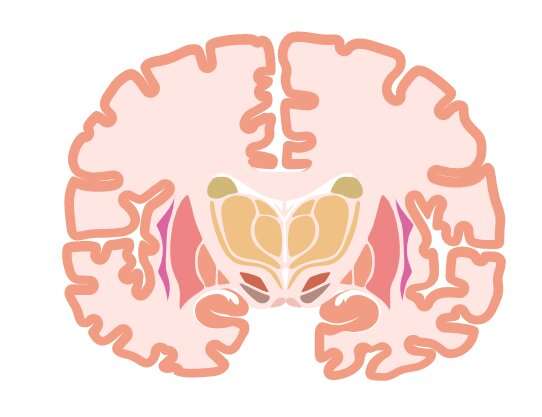This article has been reviewed according to Science X's editorial process and policies. Editors have highlighted the following attributes while ensuring the content's credibility:
fact-checked
peer-reviewed publication
trusted source
proofread
Anti-depressant agent KNT-127 found to reduce stress as well as depression

Depression due to psychological stress affects millions of people worldwide. However, most of the existing anti-depressant drugs are slow, prone to development of resistance, and have severe side effects, demanding the need for more effective treatment options.
Delta opioid receptors (DOPs) are known to play a key role in the development of depression and similar diseases. Previous studies have revealed that DOP agonists (substances that bind DOPs instead of the regular compound and cause the same effect) have improved efficacy and lower side effects than most existing anti-depressant drugs. Recent studies have identified KNT-127 as a potent DOP agonist with significant anti-depressant activity, quick action, and minimal side effects. However, the underlying mechanism of action is not well understood.
To this end, Prof. Akiyoshi Saitoh, Mr. Toshinori Yoshioka, Jr. Associate Prof. Daisuke Yamada, and Prof. Eri Segi-Nishida, at the Tokyo University of Science, along with Prof. Hiroshi Nagase from the University of Tsukuba, set out to assess the therapeutic and preventive effects of KNT-127 in a mouse model with depression. The findings of this study were published in Neuropharmacology on April 4, 2023.
Explaining the motivation behind their study, Prof. Saitoh says, "We previously discovered that delta-opioid receptor (DOP) agonists may [have] quick action and have a low risk of side effects compared to existing drugs. Thus, we have been working on their clinical development as a new treatment strategy for depression. In this study, we attempted to elucidate the mechanism of antidepressant-like effects of KNT-127, a selective DOP agonist, in a mouse model of depression."
The hypothalamic-pituitary-adrenal axis, hippocampal neurogenesis, and neuroinflammation are regarded as the major factors in the processes leading to the development of depression. Thus, understanding the effect of KNT-127 on the above parameters was crucial towards decoding its underlying working principle.
To this end, Prof. Saitoh and team created the depression mouse model called chronic vicarious social defeat stress (cVSDS) mice, by exposing five-week-old male mice to extreme psychological stress for 10 minutes per day, repeated for 10 days. Next, KNT-127 was given to the mice both during (10 days) and after (28 days later) the stress period, to assess its efficacy.
They observed that prolonged administration of KNT-127 during (anti-stress effect) and after stress (anti-depressant effect) period, significantly improved social interaction and levels of serum corticosterone (a hormone secreted under stress in mice) in cVSDS mice.
Moreover, KNT-127 administration during stress, suppressed stress-induced newborn neuronal death in the hippocampus, rather than increasing neurogenesis, or the formation of new neurons. In contrast, when administered after stress, KNT-127 did not affect newborn neuron survival rate at all. Furthermore, unlike conventional antidepressants, KNT-127 did not affect neurogenesis even under stress-free conditions.
Psychological stress increases the number of microglia and activated microglia in the brains of cVSDS mice. Interestingly, under both models of delivery, KNT-127 suppressed microglial activation and hence reduced inflammation in the hippocampus.
In a nutshell, during and post stress period, KNT-127 prevents neuronal inflammation and reduces newborn neuronal death without affecting neuron formation to exert anti-stress and anti-depressant-like effects, respectively. However, further research is warranted for better insights regarding DOP agonists and the mechanism underlying their anti-depressant effects.
The anti-stress effect of KNT-127 may offer added benefits for patients during treatment. Prof. Saitoh elaborates, "Patients with depression often have to face situations where they cannot avoid stressful environments, even during treatment. Therefore, we believe that the additional anti-stress effect during the treatment period has important clinical significance."
Prof. Saitoh concludes, "We expect that the successful clinical development of DOP agonists will greatly broaden the options for the treatment of depression in the future."
More information: Toshinori Yoshioka et al, KNT-127, a selective delta opioid receptor agonist, shows beneficial effects in the hippocampal dentate gyrus of a chronic vicarious social defeat stress mouse model, Neuropharmacology (2023). DOI: 10.1016/j.neuropharm.2023.109511

















